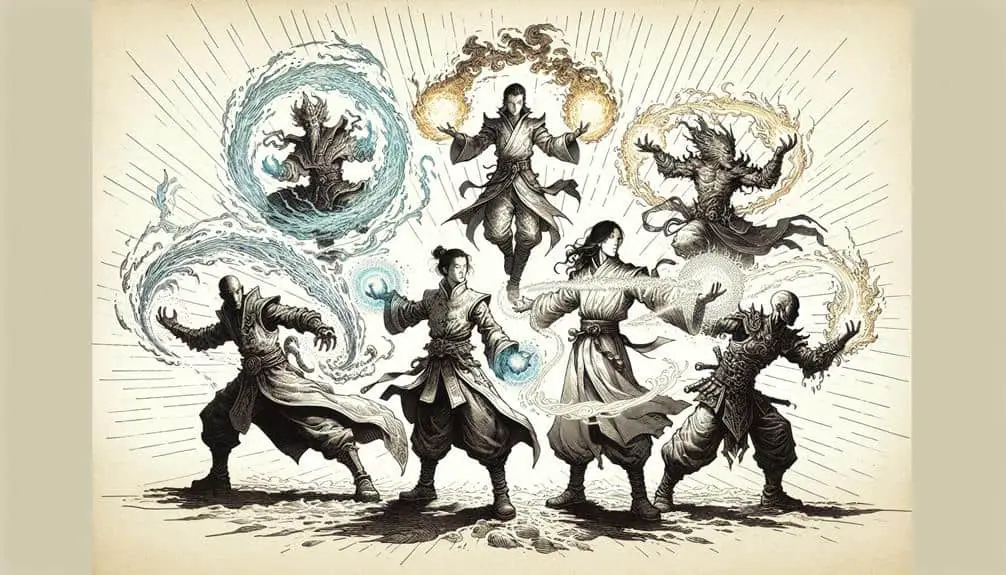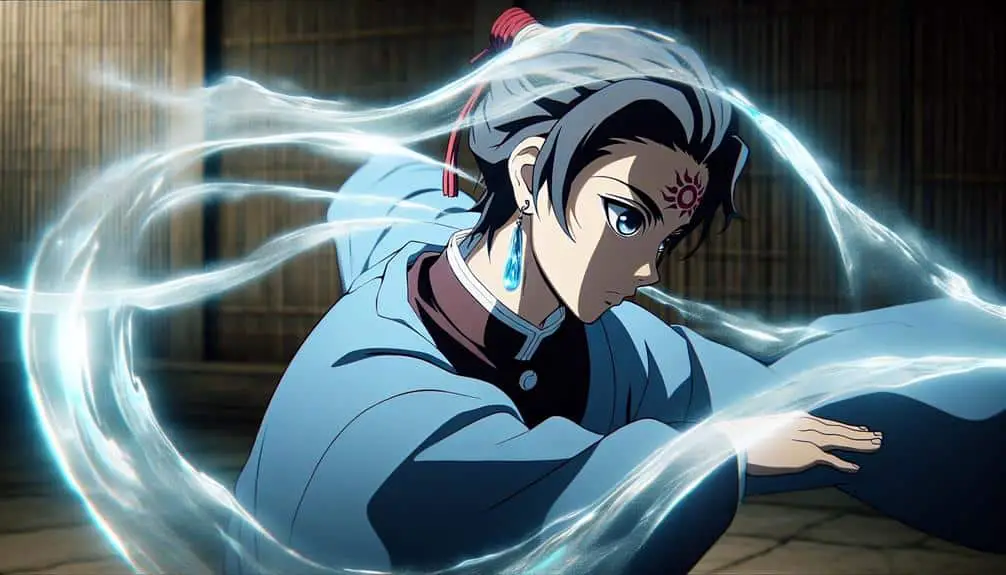As a Hashira, your duties include overseeing Demon Slayers' training, excelling in combat leadership, fostering unity, effective communication, and quick decision-making for successful demon extermination missions. These essential tasks form the backbone of your responsibilities and shape your team's effectiveness.
Key Points
- Oversee training, missions, and combat excellence of Demon Slayers.
- Implement thorough training and mentoring programs for skill development.
- Utilize demon tracking and combat skills effectively on missions.
- Formulate strategic approaches and problem-solving strategies.
- Foster teamwork, clear communication, and conflict resolution within the team.
Hashira Leadership Responsibilities
Leading as a Hashira necessitates overseeing the training and missions of lower-ranked Demon Slayers with precision and dedication. Your role entails not only excelling in combat but also in leadership development and team building. To foster a cohesive team, you must set a high standard through your actions, inspiring those under your guidance.
Leadership development is key as a Hashira. It involves honing your ability to communicate effectively, make swift decisions under pressure, and motivate others towards a common goal. By investing time in developing these skills, you can guide your team to success and guarantee the Demon Slayer Corps operates at its peak efficiency.
Team building is equally important. As a Hashira, you must cultivate a sense of unity among your Demon Slayers. Organizing team-building activities, fostering camaraderie, and resolving conflicts promptly are essential aspects of maintaining a strong and resilient team. By prioritizing both leadership development and team building, you can lead your Demon Slayers to victory against the forces of darkness.
Training and Mentoring Initiatives
To enhance the effectiveness of your Demon Slayer Corps unit, implementing thorough training and mentoring initiatives is essential. Skill development lies at the core of these initiatives. Designing training programs that focus on both physical combat techniques and mental fortitude is pivotal for honing the abilities of your fellow Demon Slayers. By investing in skill development, you guarantee that each member of your unit is well-equipped to face the challenges posed by demons.
Mentorship programs play a crucial role in nurturing the potential of junior members. As a Hashira, fostering a culture of mentorship within your unit can have a profound impact on the growth and success of your comrades. Pairing experienced members with novices allows for the transfer of knowledge, techniques, and values that are essential to the Demon Slayer Corps. Additionally, mentorship programs create a sense of camaraderie and unity within the unit, fostering a supportive environment where everyone can thrive. By prioritizing skill development and mentorship programs, you lay the foundation for a strong and resilient Demon Slayer Corps unit.
Demon Extermination Missions
When initiating demon extermination missions as a Hashira, careful planning and tactical execution are vital for ensuring the safety and success of your unit. To excel in these missions, you must master demon tracking techniques and leverage combat skills alongside teamwork synergies. Here are four key aspects to focus on:
- Demon Tracking Techniques: Utilize your keen senses and specialized knowledge to track demons efficiently. Understanding their behavior patterns and weaknesses is essential for a successful mission.
- Combat Skills: Hone your swordsmanship and breathing techniques to effectively engage demons in battle. Your proficiency in combat will greatly impact the outcome of the mission.
- Teamwork Synergies: Foster strong communication and coordination within your unit. Each member's unique abilities can complement one another, leading to a more cohesive and effective demon extermination team.
- Mission Success: Prioritize the safety of civilians and your team members while aiming for the successful elimination of the demon threat. Adaptability and quick decision-making are key to achieving mission success.
Decision-Making and Strategy Planning
As you transition from carrying out demon extermination missions to decision-making and strategy planning as a Hashira, your focus shifts towards formulating effective tactical approaches for confronting diverse demonic threats. Strategic thinking becomes paramount in this role, requiring you to analyze situations, anticipate enemy movements, and devise innovative solutions.
To excel in decision-making, mastering problem-solving strategies is crucial. You must be able to assess complex scenarios swiftly and accurately, identifying the root cause of issues to implement targeted interventions. Effective strategy planning involves setting clear objectives, evaluating risks, and adapting your approach based on evolving circumstances.
Utilizing your experience and expertise, you must develop detailed plans that account for various contingencies. Remember, strategic thinking isn't just about reacting to threats but also about proactively shaping outcomes. By honing your problem-solving skills and embracing strategic thinking, you can navigate the challenges of demon extermination with precision and success.
Team Coordination and Support
An essential aspect of fulfilling your duties as a Hashira is effectively coordinating and supporting your team. To excel in this area, consider the following key strategies:
- Communication strategies: Implement clear and open lines of communication within your team. Foster an environment where team members feel comfortable sharing ideas, feedback, and concerns. Utilize both formal meetings and informal check-ins to make sure everyone is on the same page.
- Team building: Organize team-building activities to strengthen relationships and improve collaboration among members. Encourage teamwork, trust, and mutual respect. Recognize and celebrate team achievements to enhance morale.
- Conflict resolution: Develop skills in conflict management to address any disagreements or issues that may arise within the team. Approach conflicts objectively, listen to all parties involved, and work towards finding a resolution that benefits everyone.
- Task delegation: Master the art of task delegation by assigning responsibilities based on team members' strengths and expertise. Make sure tasks are distributed fairly and efficiently to optimize productivity and achieve collective goals.




